The German government on July 29 issued an official response to comments made by Russian President Vladimir Putin over the weekend, in which the Russian leader warned of a change in Moscow's military stance if Washington placed additional nuclear-capable intermediate-range cruise missiles on German soil in the coming years as planned.
"We will not let ourselves be intimidated by such comments," German Foreign Ministry spokesman Sebastian Fischer said at a news conference in Berlin.
German government deputy spokeswoman Christiane Hoffmann was also asked to respond. Ms. Hoffmann said Germany took note of Mr. Putin's comments, but also said the proposed changes to the U.S. missile deployment plan would only serve as a deterrent and were necessary because of Russia's recent actions.
What did Putin say?
Russian President Putin, speaking at the Navy Day parade in St. Petersburg on July 28, said that if the United States continues with plans to deploy additional weapons in Europe that could theoretically hit targets on Russian soil, Moscow would consider adequate retaliatory measures.
The Russian leader recalled the arms race of the early 1980s, at the end of the Cold War, when nuclear-capable Pershing II missiles were deployed in West Germany. Mr. Putin warned of the risk of a repeat of the same phenomenon.
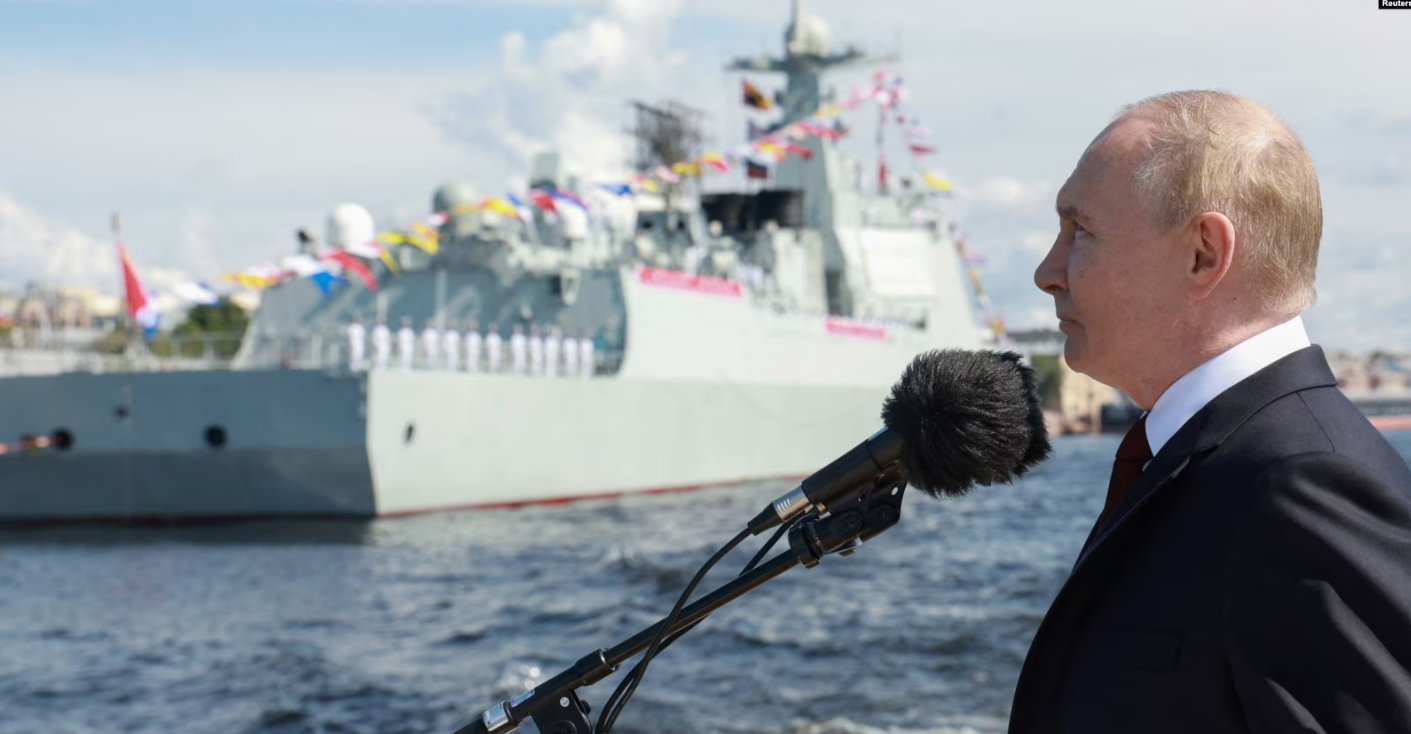
Russian President Vladimir Putin speaks at the Navy Day parade in St. Petersburg, July 28, 2024. Photo: RFE/RL
"The statements by the US administration and the German government about plans to deploy US long-range precision missile systems in Germany from 2026 have attracted attention," state news agency TASS quoted Mr. Putin as saying.
"If the United States implements such plans, we will free ourselves from the previous unilateral moratorium on the deployment of medium- and short-range strike weapons, including on enhancing the capabilities of our Navy's coastal defense forces," the Russian president warned.
According to DW, here Mr. Putin is alluding to the terms of the 1987 Intermediate-Range Nuclear Forces (INF) Treaty – which the US and then Russia withdrew from in 2019. Both sides blame each other for violating the terms of the treaty.
According to Mr. Putin, Russia has been abiding by its terms since withdrawing from the treaty, but if the US deploys more weapons in Germany, the situation will change.
The INF Treaty banned all short- and intermediate-range (land-based) nuclear missiles and cruise missiles with ranges of 500-5,500 km – the weapons that mainly pose a threat to European security.
During a meeting with Russia's Security Council in June, Mr. Putin reiterated that in 2019, Moscow pledged not to produce and deploy such systems as long as Washington did not deploy them anywhere in the world.
"Now it is known that the United States not only produces these missile systems, but also uses them in exercises in Europe, in Denmark. Not so long ago, it was reported that they are in the Philippines. There is no information about whether these missiles will be removed from there," Putin said at the meeting.
"Open Secret"
In Europe, according to a joint statement issued by Washington and Berlin on July 10, the US will begin deploying in Germany in 2026 weapons, including SM-6 missiles, improved Tomahawk cruise missiles, capable of carrying nuclear warheads and a number of "developing hypersonic weapons", including those with significantly longer ranges than those currently deployed across Europe.
The US and Germany argue that the move is a response to developments such as Russia deploying nuclear-capable Iskander missiles in its Kaliningrad exclave, which borders Poland and Lithuania. Russia has neither denied nor admitted that it has deployed nuclear weapons in Kaliningrad.
"What we are planning now is a response aimed at preventing the use of these weapons against Germany or other targets," German Foreign Ministry spokesman Sebastian Fischer said on July 29.
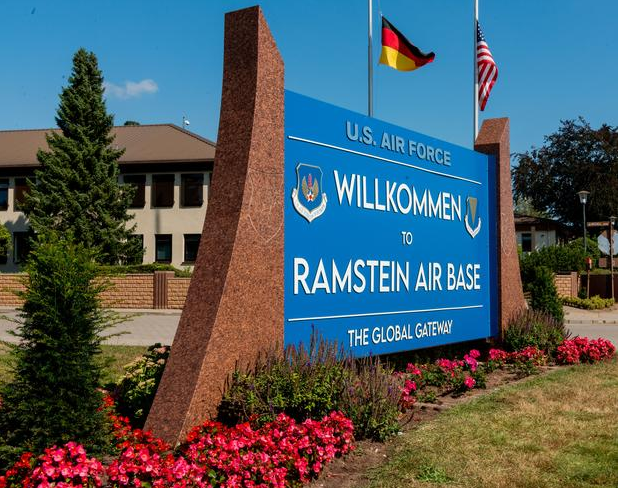
US Ramstein Air Base, near Kaiserslautern, Rheinland-Pfalz, Germany. Photo: Military.com
There are a number of US military bases in Germany, a legacy of the post-World War II and subsequent Cold War era. Many US missiles, albeit with shorter ranges, are officially deployed in the Western European country.
It is also an “open secret” – though no government officially admits it – that the US still has nuclear weapons at one of its bases in Germany, down from two locations in the years and decades before 2005.
However, the number of weapons still deployed in Germany and several other European countries has fallen significantly compared with the height of the Cold War.
Minh Duc (According to DW, TASS)
Source: https://www.nguoiduatin.vn/duc-phan-ung-lanh-nhat-truoc-canh-bao-cua-nga-ve-ten-lua-my-204240730160031104.htm





![[Photo] Cat Ba - Green island paradise](/_next/image?url=https%3A%2F%2Fvphoto.vietnam.vn%2Fthumb%2F1200x675%2Fvietnam%2Fresource%2FIMAGE%2F2025%2F12%2F04%2F1764821844074_ndo_br_1-dcbthienduongxanh638-jpg.webp&w=3840&q=75)




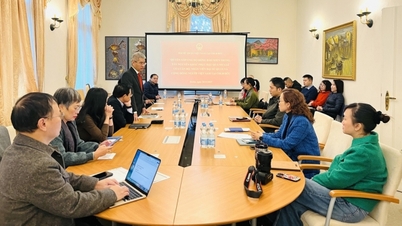

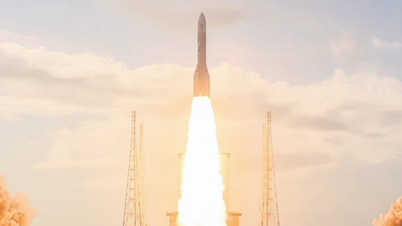










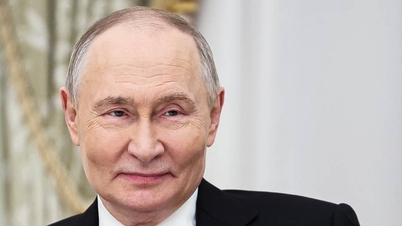
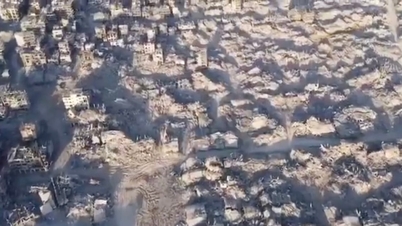







































![[VIMC 40 days of lightning speed] Da Nang Port: Unity - Lightning speed - Breakthrough to the finish line](https://vphoto.vietnam.vn/thumb/402x226/vietnam/resource/IMAGE/2025/12/04/1764833540882_cdn_4-12-25.jpeg)




























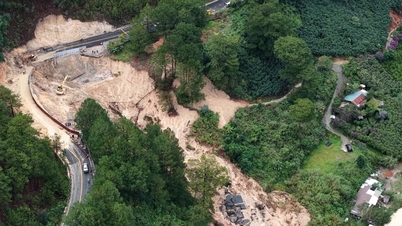


















Comment (0)